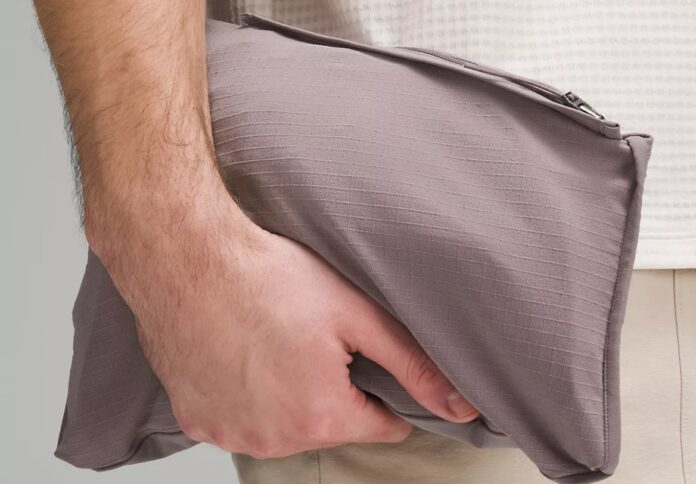
Australian enviro-tech startup Samsara Eco and athletic apparel giant lululemon have jointly launched the world’s first product crafted from enzymatically recycled polyester.
The highly anticipated lululemon limited edition Packable Anorak jacket, incorporating a blend of mixed plastic waste, end-of-life lululemon apparel, and converted carbon emissions, is now available for online purchase in Australia, the US, and Canada.
Polyester, constituting approximately 80 per cent of the synthetic fibre market globally and amounting to over 63 million tonnes produced annually, is renowned for its lightweight, durable, and versatile properties, Samsara said in a news release.
However, the disposal of polyester items poses significant environmental challenges, with the majority ending up in landfills or causing pollution.
Samsara Eco’s recycling technology, EosEco, employs a fusion of biophysics, chemistry, biology, and artificial intelligence to develop plastic-eating enzymes.
These enzymes effectively break down waste into raw materials, seamlessly integrating them into existing manufacturing processes to produce innovative products like the lululemon Packable Anorak jacket.
Paul Riley, CEO and founder of Samsara Eco, emphasised the urgent need to address the plastics crisis.
“You can’t solve the climate crisis until you solve the plastics crisis and putting an end to fashion waste is critical. Over 90% of fashion waste is currently a one-way ticket to incineration or landfill. Our latest work with lululemon shows the potential to give clothes an infinite life and prevent textiles from ending up in landfills,” he explained.
Samsara Eco’s recycling process demonstrates versatility in handling various fabric blends and feedstocks, including poly/cotton blends, nylon/elastane blends, carpet fibres, zip ties, and airbags.
Sarah Cook, chief commercial & operations officer of Samsara Eco, underscored the potential of enzymatically recycled materials to match the performance of virgin fibres, heralding a paradigm shift in apparel production.
She affirmed, Together, we’re making it possible to imagine a world where it’s possible to produce apparel without the need for virgin fibres.”
Yogendra Dandapure, vice president of Raw Materials Innovation at lululemon, stressed the company’s commitment to sustainability, noting that the collaboration with Samsara Eco aligns with their goal to transition to 100 per cent preferred materials and end-of-use solutions by 2030.




















